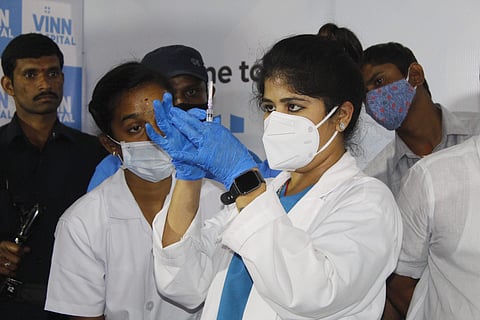

An unprecedented delay in the admission of PG doctors in medical colleges across India this year has forced resident doctors to demand a quick decision on the issue so that the burden on them, working at nearly one-third of the sanctioned strength, is eased.
The National Eligibility cum Entrance Test (NEET-PG) had seen unprecedented delay this year and even after the test was held in September, there is now a stay on the process of counselling as some candidates have challenged the reservation policy adopted for admission in PG seats. The examination, conducted by the National Board of Examination (NBE) under the Union Ministry of Health and Family Welfare is usually conducted in December-January. The exam was first deferred to April in view of the COVID-19 pandemic.
Later in April, when the devastating second wave of the pandemic hit the country, the government, following a high-level meeting chaired by Prime Minister Narendra Modi announced that the test will not be conducted before August 31, which will allow final-year MBBS students and interns to focus on clinical duties. The test was finally held on September 11 while the results were announced in October. The delay in going ahead with the admissions is due to the ongoing litigation. However, this means that medical colleges, which have nearly 85,000 junior residents from the three batches, is effectively working with just one-third of the force.
"Resident doctors are the backbone of medical colleges but the delay this year has meant that first-year PG students have not yet joined while the third-year students have already passed out. Very few of these students are actually reabsorbed in institutions as senior residents," pointed out Rohan Krishnan, president of the Federation of All India Medical Association. This, he pointed out, has led to an extraordinary burden on the existing junior residents who are made to do double shifts to make up for the reduced workforce and are burnt out.
Krishnan demanded that the PM and the health minister should intervene to ensure that the Supreme Court gives a judgement in the case during the next hearing on November 24. "We are also going to write letters to them to take up the matter with utmost priority," he added. The issue has also received strong support from the Indian Medical Association among other doctors' bodies.
